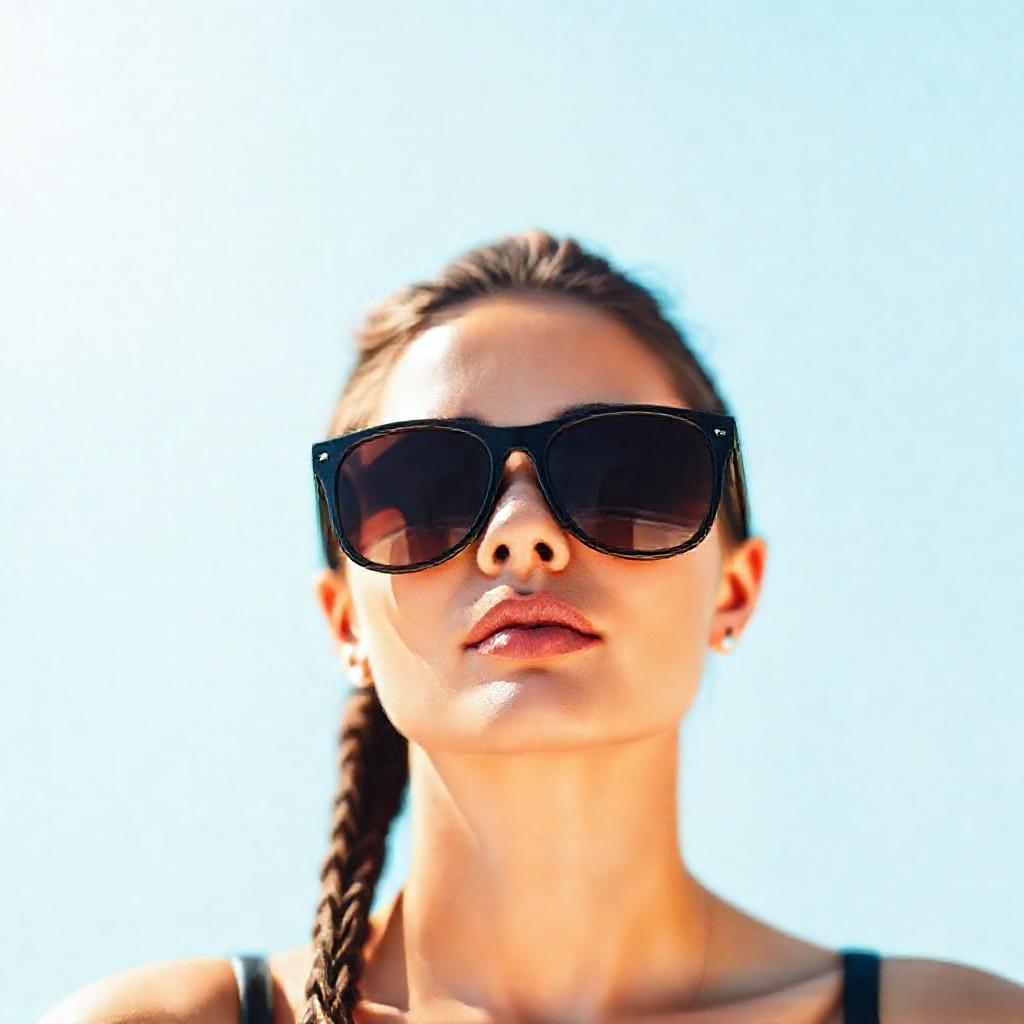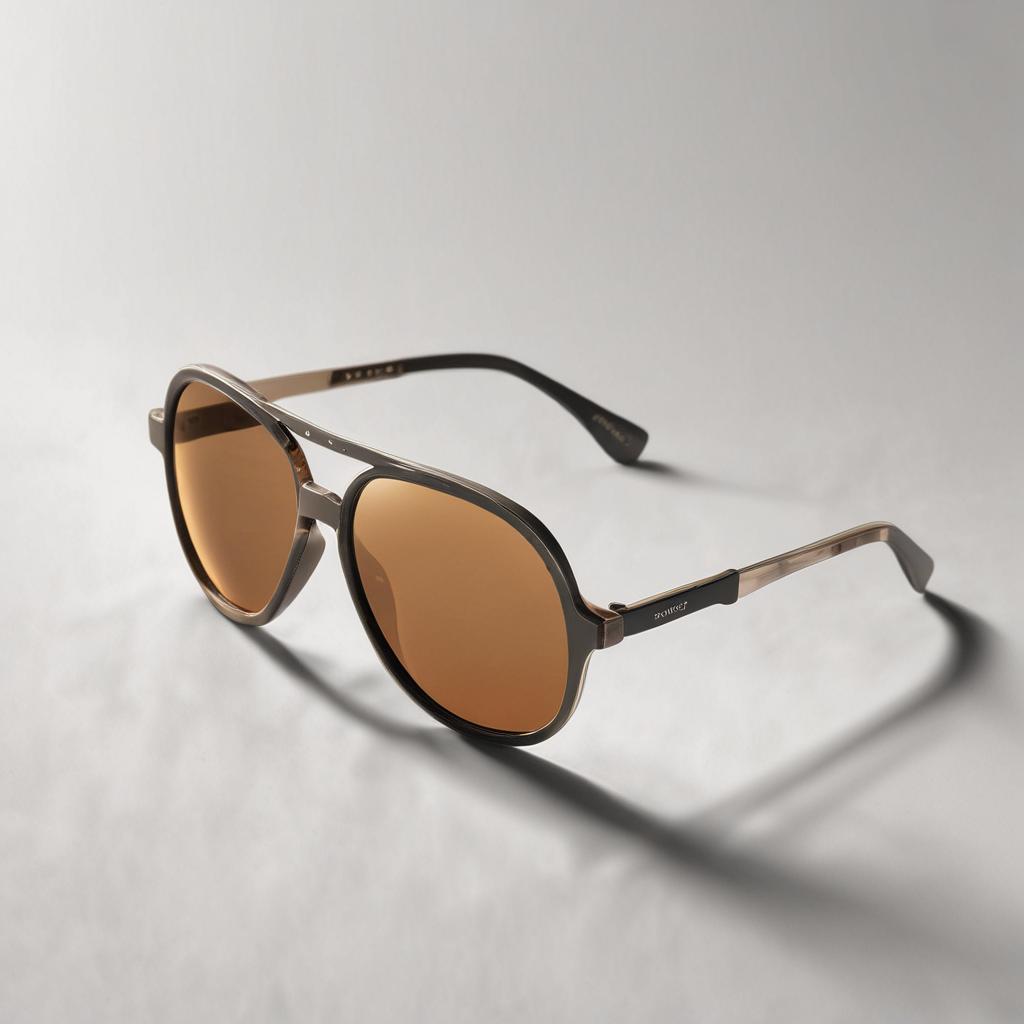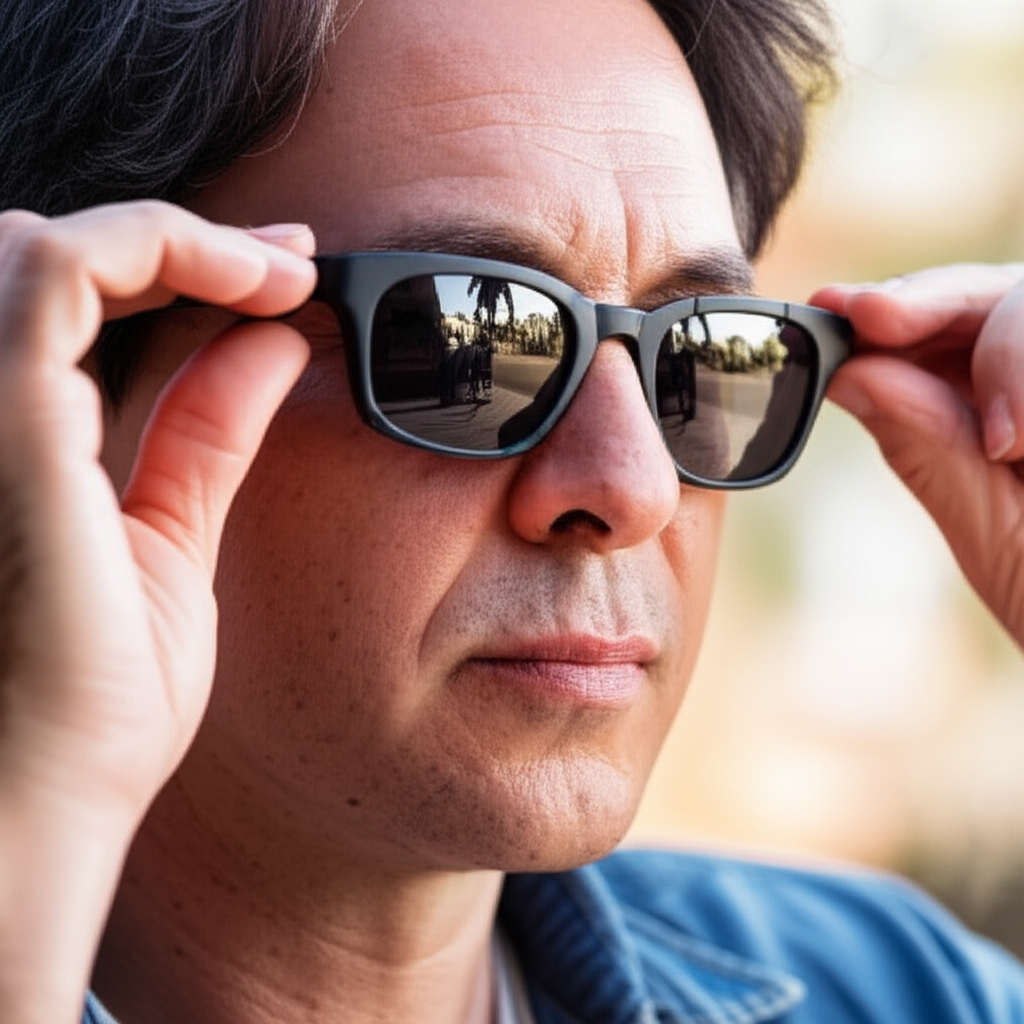Does Sunglasses Block Uv Light

Did you know that prolonged exposure to ultraviolet (UV) radiation can cause serious damage to your eyes? While sunglasses are a popular accessory, not all of them provide adequate protection against harmful UV rays. Understanding how sunglasses block UV light is essential for maintaining long-term eye health and preventing conditions like cataracts, macular degeneration, and photokeratitis. In this guide, we’ll explore the science behind UV-blocking lenses, debunk common myths, and provide practical tips for choosing the right sunglasses for optimal protection.
Understanding UV Radiation and Its Impact on Eye Health
UV radiation is a type of electromagnetic radiation emitted by the sun, divided into three categories: UVA, UVB, and UVC. While UVC is mostly absorbed by the Earth’s atmosphere, UVA and UVB rays can penetrate the eyes, leading to cumulative damage over time. Prolonged exposure increases the risk of cataracts, macular degeneration, and even eye cancer. Many people mistakenly believe that darker lenses or expensive sunglasses automatically offer better UV protection, but this isn’t always the case. The key lies in the lens material and UV-blocking technology.

How Sunglasses Block UV Light: The Science Behind UV Protection in Lenses
UV-Blocking Materials and Coatings
Sunglasses block UV light through specialized materials and coatings. Polycarbonate and CR-39 lenses are commonly used for their ability to absorb UV rays, while anti-reflective coatings enhance protection by minimizing glare. UV400-rated lenses are particularly effective, blocking up to 99-100% of UV rays, including both UVA and UVB. These lenses are a smart investment for anyone who spends time outdoors.
Polarized Lenses vs. UV Protection
Polarized lenses are designed to reduce glare from reflective surfaces like water, snow, and roads. However, polarization does not inherently block UV light. For optimal protection, look for sunglasses that combine UV-blocking technology with polarization. This dual protection ensures clear vision and shields your eyes from harmful radiation.
Common Misconceptions About UV Protection in Sunglasses
There are several myths surrounding UV protection in sunglasses. For example, some believe that darker lenses offer better UV protection, but lens darkness is unrelated to UV-blocking capability. Clear lenses can also be treated to block UV rays, making them suitable for everyday wear. Additionally, while high-quality sunglasses often provide superior protection, expensive brands aren’t always necessary—what matters is the lens material and UV rating.
Benefits of UV-Protective Sunglasses for Long-Term Eye Health
Preventing Cataracts and Macular Degeneration
Chronic UV exposure is a leading cause of cataracts, which cloud the eye’s lens, and macular degeneration, which affects central vision. Wearing UV-protective sunglasses can significantly reduce these risks by shielding the eyes from harmful radiation. Consistency is key—wear sunglasses year-round, even on cloudy days, to maintain long-term eye health.
Key Features
UV Protection Rating
Indicates UVA/UVB blocking percentage (e.g., UV400 blocks 99.9% UVA/UVB)
Available
Lens Material
Polycarbonate or CR-39 lenses often provide better UV resistance than standard plastic
Available
Polarized Lenses
Reduces glare but does not inherently increase UV protection unless UV-coated
Available
Photochromic Lenses
Darken in sunlight but require UV-blocking coating for full protection
Limited
Blue Light Filtering
Some lenses block HEV light but may not enhance UV protection
Coming Soon
Feature overview for Does Sunglasses Block Uv Light
Reducing the Risk of Eye Cancer
Prolonged UV exposure has been linked to ocular melanoma, a rare but serious form of eye cancer. Sunglasses with UV-blocking lenses are especially important in high-risk environments like beaches and snowy landscapes, where UV rays are more intense. Investing in proper eye protection can help mitigate this risk.

Protecting Against Sun Glare and Discomfort
UV protection isn’t just about health—it also enhances comfort and safety. Glare from the sun can cause squinting, eye strain, and even temporary blindness, particularly while driving or engaging in sports. Sunglasses with UV-blocking and polarized lenses improve visual clarity, making outdoor activities safer and more enjoyable.
Selecting the Right Sunglasses: Key Features to Prioritize for UV Protection
Check for UV Protection Ratings (e.g., 100% UVB/UVA Block)
When shopping for sunglasses, look for labels that explicitly state UV protection, such as “UV400” or “100% UV protection.” These labels indicate that the lenses block 99-100% of UVA and UVB rays. Avoid relying solely on lens darkness or price—always verify the UV rating for peace of mind.
Lens Color and Tint Considerations
Lens color (e.g., gray, brown, green) primarily affects contrast and aesthetics, not UV protection. The effectiveness of UV-blocking lenses depends on the material and coating, not the tint. If you prefer a specific color, ensure it comes with a UV400 rating for comprehensive protection.
Frame Size and Wraparound Styles
Larger frames and wraparound styles provide better coverage against UV rays, reducing exposure from the sides. These designs are particularly beneficial for activities like skiing, cycling, or driving, where UV light can enter from multiple angles.
Polarized Lenses for Glare Reduction
Polarized lenses excel at reducing glare, making them ideal for water sports, fishing, and driving. For maximum protection, choose polarized sunglasses that also feature UV-blocking technology. This combination ensures both comfort and safety in bright conditions.
Conclusion: Prioritize UV Protection When Choosing Sunglasses
Selecting sunglasses with proper UV protection is crucial for maintaining eye health and preventing long-term damage. Always check for UV400 or 100% UV protection labels, and don’t assume that darker or more expensive lenses are inherently better. By making informed choices, you can enjoy clear vision and safeguard your eyes from harmful UV radiation.

Frequently Asked Questions About UV Protection in Sunglasses
Do all sunglasses block UV light?
No, not all sunglasses block UV light. Only those labeled with UV400 or 100% UV protection provide adequate shielding against UVA and UVB rays. Always verify the UV rating before purchasing.
How can I tell if my sunglasses block UV radiation?
Look for a UV protection label on the sunglasses or consult the manufacturer’s specifications. You can also test them with a UV flashlight—if the lenses darken when exposed to UV light, they offer some protection.
What is the difference between UV400 and 100% UV protection?
UV400 lenses block UV rays up to 400 nanometers, covering all UVA and UVB wavelengths. “100% UV protection” is a broader term that guarantees the same level of shielding, ensuring comprehensive eye protection.
Can clear sunglasses block UV light?
Yes, clear sunglasses can block UV light if they have UV-coated lenses. These are commonly used in photochromic or everyday lenses to provide protection without changing appearance.
Are expensive sunglasses always better for UV protection?
No, UV protection depends on the lens material and technology, not the brand or price. Affordable sunglasses can offer excellent UV protection if they meet the necessary standards.
